PREP4BLUE Helpdesk
What is the goal of the PREP4BLUE Helpdesk?
PREP4BLUE’s aim is to support the R&I goals of the ‘Mission: Restore our Ocean & Waters by 2030’ and facilitate its successful implementation, through the development of tools, resources and guidelines to be used by stakeholders on all Mission funded projects. The aim of the PREP4BLUE Helpdesk is to provide stakeholders with access to PREP4BLUE’s bank of communications resources and tools.
Resources
PREP4BLUE partners have developed a range of tools and resources to support you with the implementation of Mission ‘Restore our Ocean & Waters by 2030’. The complete catalogue of PREP4BLUE resources is available here.
PREP4BLUE Toolbox for Citizen Engagement – contains approaches, case studies and practical advice for driving citizen engagement with your Mission project actions
#MissionOcean Social Media Toolkit – prepared by PREP4BLUE to help you, our partners, grow your digital media skills and capacities.
#MissionOcean Digital Academy – developed by PREP4BLUE to upskill project teams on best practice social media and digital skills.
Wavelinks – an innovative and interactive database to help you identify projects, citizen science initiatives, stakeholders, engagement methods, events, services, policies and funding opportunities!
PREP4BLUE Glossary – your go-to guide, offering short, detailed explanations for common terms used in the framework of the project.
PREP4BLUE Citizen Engagement Webinar Series – recordings from the PREP4BLUE webinar series on Planning for Citizen Participation in Mission Ocean & Waters’
PREP4BLUE Stakeholder Engagement Webinar Series – recordings from the PREP4BLUE webinar series on Stakeholder Engagement in Mission Ocean & Waters
Frequently Asked Questions
Welcome to our Frequently Asked Questions section! Here, you will find answers to commonly asked questions about the Mission and learn more about the PREP4BLUE project. The most commonly asked questions include:
Funded by the European Union’s Horizon Europe program, PREP4BLUE is a €4.9 million, three-year project that will set the foundations for co-creating and co-implementing the research and innovation required to achieve Mission Restore our Ocean and Waters by 2030.
With a 2030 target, the EU Mission “Restore our Ocean and Waters” aims to protect and restore the health of our ocean and waters through research and innovation, citizen engagement and blue investments. The Mission’s new approach will address the ocean and waters as one and play a key
role in achieving climate neutrality and restoring nature.
EU Missions are a novelty of the Horizon Europe research and innovation programme. They are a new way to bring concrete solutions to some of our greatest challenges. More information here.
Explore answers to more Frequently Asked Questions by clicking on the button below.
Panel of Experts
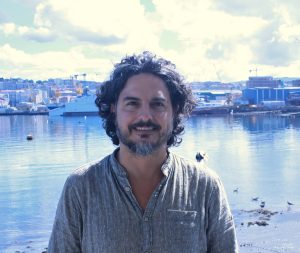
Andreu Blanco Cartagena
Organisation: Centro de Investigación Mariña, Universidade de Vigo, Future Oceans Lab, Spain
Geographic area of activity: Atlantic & Artic
Areas of expertise: Marine Protected Areas, Ecological connectivity, conservation management, marine food webs, invasive species
Marine biologist and PhD in Marine Ecology, my background and main research line encompass the multidisciplinary science of coastal marine management in response to human disturbances, mostly applied to enhance our understanding on marine ecosystem functioning.
My early research was directed to studying the effects of anthropogenic disturbances (invasive species, fisheries, aquaculture and oil spills) on species trophodynamics (stable isotopes analysis). Later on, in my PhD, I aimed at boosting wild populations of endangered seahorses through the supply of captive-reared Hippocampus guttulatus (closing its life-cycle in captivity for the first time).
I have contribute to evaluate harvesting impacts on sea-urchin wild population, and mapped the distribution of invasive macroalgae and their management along the Western Iberia Peninsula. Now, as a PI, I am assessing the marine functioning connectivity of different Marine Protected Areas along the western Iberian Peninsula in close collaboration with European institutions.
Throughout my research career I had a strong commitment towards science outreach by participating in several dissemination activities, including FameLab, PintOfScience, Scientific Youtubers, STEM apps, scientific theatre, etc. I have also been enrolled in different participatory processes on stakeholder engagement for the evaluation of MPA zonation and climate vulnerability assessments.
I am the Science Communications Coordinator and an active participant in a COST Action (CA19107) and have actively contributed to various IUCN (WCPA, CEM) and ICES (WGZE, WKFOODWEB) expert groups.
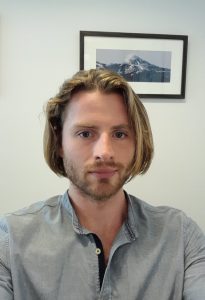
David Whyte
Organisation: MaREI, the SFI Research Centre for Energy, Climate and the Marine, University College Cork, Ireland
Geographic area of activity: Atlantic & Artic
Areas of expertise: Social inclusion, Citizen science, Participatory methods, Ocean politics, Surfing
I am a postdoctoral researcher with MaREI SFI Centre for Energy, Climate and Marine, University College Cork, Ireland. I research and support participatory frameworks to include coastal communities in the management, protection, and restoration of their ocean resources and ecosystems. My current work is based on developing frameworks to increase and measure social inclusion through activities that engage communities with the ocean – citizen science, ocean literacy, science-arts collaborations, and through ocean practices like surfing. Currently this work takes place under the framework of the EU Mission: Restore Our Ocean and Waters by 2030. In one of my projects, PREP4BLUE, I coordinate and network marine-focused citizen engagement activities at a European level. This involves linking discrete initiatives with each other, regionally, and to the European Commission, to better align them with the Mission’s targets and to drive Mission success.
I have been a surfer for 15 years and have studied it in some way since 2014. My PhD was in social anthropology, where I examined the evolving place of surfing in rural Irish society, and how rural Irish surfers’ ocean-based practices and surf break hierarchies affect their wider politics and understandings of environmentalism.
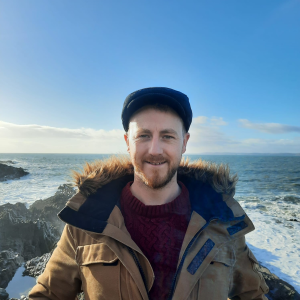
Gary Kett
Organisation: CIIMAR, Interdisciplinary Centre of Marine and Environmental Research, Porto, Portugal
Geographic area of activity: Atlantic & Artic
Areas of expertise: Stakeholder engagement, Network and capacity building, International ocean diplomacy, Science-policy, Youth engagement. Current area of focus is plastic pollution and the development and assessment of marine litter removal technologies, experience in sustainable aquaculture and fisheries and the representation of coastal and fishing communities in blue economy activities.
Gary Kett is a marine ecologist from Ireland, he received his PhD from University College Cork after studying the impacts of marine climate change on the health and disease of low trophic and shellfish species for the aquaculture industry. His previous research experience also includes marine mammal ecology and conservation and monitoring offshore industries for impact mitigation. Gary has held the role of Ireland’s All-Atlantic Ocean Youth Ambassador engaging in High-Level dialogues, ocean science diplomacy, science communication, and network building. He has represented Early Career Ocean Professionals in various roles advocating for inclusion, diversity, and empowerment. Gary now works at the CIIMAR Centre for Interdisciplinary Marine and Environmental Research where he works on several EU-funded projects addressing plastic pollution, implementing and assessing solutions to reduce marine and riverine litter and enhancing stakeholder engagement.
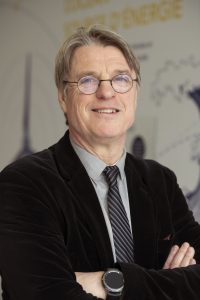
Gilles Lericolais
Organisation: IFREMER and SGMER (General secretary of the Sea of the Prime Minister of France
Geographic area of activity: Danube & Black Sea
Areas of expertise: Marine geology, Source to Sink, Paleoclimate knowledge, European and International Affairs, Science to Policy, Sustainable Blue Economy
I am presently acting as Senior Scientific Officer for the French Prime Minister General Secretariat for the Sea. From 2011 to 2020, I have been the European and International Director of Ifremer. I received my PhD (1997) and Professorship Habilitation (2009) in marine geology. I have been chief scientist of more than 10 scientific cruises and author and co-author of more than a 100 publications and communications. From 2007 to 2013, I was nominated Vice-Chair and then Chair of the Site Survey Panel for IODP and Chair (2016 to 2018) and Vice-Chair (2018-2020) of the ECORD Facility Board for IODP. I also was the Vice-Chair (2019-2020) of the French Committee for the IOC of the UNESCO. I have been a member of the Board of Trustees of POGO from 2019 to 2023. I am a member of the Internal Advisory Committee of the JPI Oceans and a member of the advisory board of Geological Services for Europe (GSEU) and of the European Ocean Research and Education Alliance (EOREA). In June 2019, I was elected Chair of the European Marine Board (EMB) for a 3 years mandate, mandate renewed for another 2 years in April 2022.

Pablo Trucco-Pignata
Organisation: National Oceanography Centre, United Kingdom
Geographic area of activity: Atlantic & Artic
Areas of expertise: Ocean Biogeochemistry, Air-sea fluxes, Seawater carbonate chemistry, Ocean acidification, Eutrophication, Oxygen minimum zones, Fluxes of greenhouse gases, Marine autonomous platforms, Sensor development, Artic and Antarctic marine science, Oxygen, CO2, Methane, Nutrients, Argo floats, Gliders, Moorings, Oceanography
As an oceanographer, I am fascinated by the ocean’s carbonate chemistry and biogeochemical cycles. I have a BSc in Oceanography from the Universidad Autónoma de Baja California, Mexico, and a PhD from the University of Southampton. I currently work as a Research Scientist at NOC, in the Ocean Technology and Engineering department, developing autonomous sensors for ocean observation. My research focuses on the seawater carbonate system and the interactions of gases such as oxygen, methane, and nitrous oxide in various oceanic and coastal settings. I use biogeochemical models to study the air-sea fluxes of greenhouse gases and the impacts of ocean acidification and climate change. I am especially interested in the biogeochemical variability of polar oceans, coastal areas, and oxygen minimum zones. I also engage with international policy to provide scientific evidence for ocean governance and climate solutions.
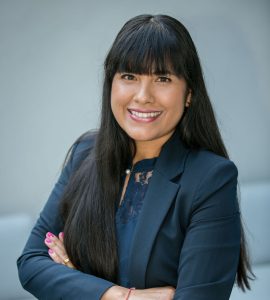
Organisation: University of Ghent, Belgium
Geographic area of activity: Atlantic & Artic
Areas of expertise: Ocean literacy, Sustainable blue economy, Marine social sciences, Maritime industry
Evelyn Paredes Coral is a marine scientist committed to advancing the blue economy through ocean literacy initiatives. With a transdisciplinary background on marine, social and educational sciences, she has a keen interest in understanding the connections between people and the ocean, with particular interest on people working in the blue economy. Evelyn obtained her Masters in Marine and Lacustrine Science and Management with specialization on conservation biology and ecosystem management from the Free University of Brussels, Ghent University and University of Antwerp in Belgium (2017). She recently earned her PhD in Marine Sciences at Ghent University studying ocean literacy in the context of the blue economy. Besides her solid scientific background, she gained expertise in projects oriented to training and skills development for maritime professionals while she worked as Scientific Project Officer at the Marine Training Unit.
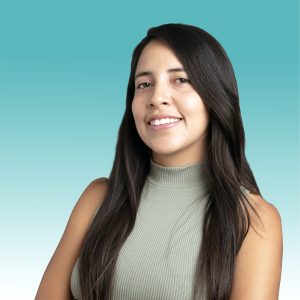
Mariana Mata Lara
Organisation: SUBMARINER Network, Portugal
Geographic area of activity: Atlantic & Artic
Areas of expertise: Capacity building, Stakeholder engagement, Communication, Implementation, Blue economy, women in the Blue Economy
With an academic and professional background built in Europe and the Americas, Mariana has shaped her career in environmental management, conservation and communication, with a specific focus and passion for the Ocean and Coasts.
She currently work as a Senior Project Manager for Sustainable Projects (s.Pro) and the SUBMARINER network, focusing on EU funded project coordination and proposal writing, stakeholder engagement and capacity building in the areas of Blue Economy, Marine Protected Areas and Women in the Blue Economy. In her free time she is also part of the Surfrider Porto Chapter, focusing on ocean advocacy.
Mariana has worked as project coordinator at Geonardo Environmental Technologies in Hungary, and carried out research on coastal management and environmental health assessments for the National Laboratory of Coastal Resilience in Mexico, worked as marine research assistant and technical consultant for two Universities and one governmental organization, and expanded her collaborations with other organizations as scientific diver, media content manager, proposal writer, communicator, advocate and lecturer. She collaborated for two years with the non-profit Nakawe Project on education, awareness and research projects on shark conservation, and she was the course coordinator and lecturer on Integrated Coastal Zone Management for the organization Mexico Sostenible.
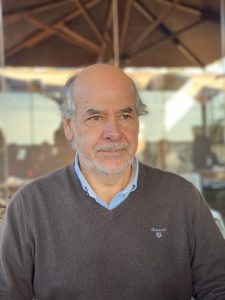
Rui Azevedo
Organisation: Fórum Oceano – Association of the Economy of the Sea, Portugal
Geographic area of activity: Mediterranean Sea
Areas of expertise: Project management, Strategic advice
Strategic Adviser of Forum Oceano, Rui Azevedo was Secretary-General of Fórum Oceano, from 2009 to 2021. Rui Azevedo has generated extensive experience in coordination of projects in different maritime sectors, with the support of European Funds, and he had the responsibility of organising different events – conferences, seminars, workshops with the participation of stakeholders of maritime affairs. As a consultant near CCDR-N (2007- 2009) he was in charge of the coordination of the “Ocean Agenda of Northern Region” and took part in the preparation of the Sea Knowledge and Economy Cluster Strategy submitted to the Collective Efficiency Strategies bid. From 2006 to 2007, he was Chairman of the Sea Itinerant University, a project managed both by Porto and Oviedo Universities and the Portuguese Navy School. As Director of the Conference of Peripheral and Maritime Regions of Europe (2000-2007), he was in charge of the coordination of different studies, namely, “Europe of the Sea” (2005-2006) and the Strategic Studies for interregional Cooperation in the West Mediterranean and Atlantic (2000). Furthermore, he was founder, shareholder and chairman of Quaternaire Portugal S.A. (1991-99) where he was engaged in intense activity with regards to the coordination of projects and surveys in the field of regional development, spatial planning and interregional cooperation. Moreover, he was a part-time Guest Lecturer at Engineering Faculty, Porto University (1996-2022).
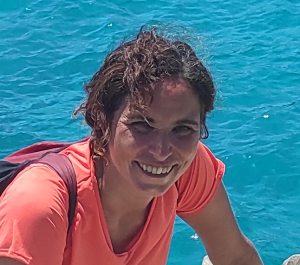
Laura Garcia Peteiro
Organisation: Institute of Marine Research – Spanish National Research Council (IIM-CSIC)
Geographic area of activity: Atlantic & Artic
Areas of expertise: Aquaculture, Fisheries, Bivalves, Marine protected areas, Ecology, Global change
I have a PhD in marine biology and aquaculture and a MSc in Geoinformatics. I also have extensive inter-sectorial and interdisciplinary experience, having
worked in NGOs (SEO-BirdLife), companies in the aquaculture sector (PROINSA S.A.), technological centers (CETMAR), national (IIM-CSIC, UVigo) and international universities and research centres (UAveiro-Portugal, OIMB-USA). I’ve always lived and worked close to the sea, and that droves my curiosity on the processes which interconnect everything in the ocean. My main research interest is focused in connectivity patterns in marine populations. I am not an oceanographer but I’ve developed a special interest in coupling physical and biological processes to understand marine invertebrate population dynamics, paying special attention to larval dispersal patterns of bivalves, ecology and physiological response to global change for its integration in the spatial management of marine resources and maritime space. Right now, I’m participating in several projects on the use of new technologies for the comprehensive management of sedentary resources, such as natural marking techniques for the quantification of bivalve connectivity patterns and validation of biophysical models of larval dispersal; use of drones to monitor intertidal populations; or the application of GIS techniques for the incorporation of the spatial component in the physiological response to stress and the development of metapopulation models.
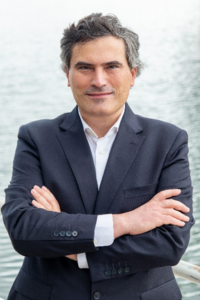
Miguel Marques
Organisation: Skipper and Wool, Portugal
Geographic area of activity: Atlantic & Artic
Areas of expertise: Blue Economy, Sustainable Development, Blue Big Data
Miguel Marques founded, in 2021, Skipper & Wool and its international thought leadership project named Blue Info, which aims to make relevant contributions to the various pieces missing for the complex “blue puzzle” of sustainable development of our oceans, seas, rivers and lakes, as well as climate change mitigation and adaptation. At the core of the activity of Blue Info is the analysis of blue big data. Before Blue Info, Miguel Marques was a PwC Partner and founded and led for over a decade (2010-2020) PwC’s Blue Economy Global Centre of Excellence, which was focused on blue growth, the promotion of economic development, the creation of new jobs and the protection of the environment, through shipping, ports, shipbuilding and other ocean-related industry sectors. From 1998 to 2020 Miguel Marques worked in PwC advising leaders of private and public companies, of several industries, in taking their best sustainable decisions.
Miguel is particularly focused on ESG’s and SDG’s implementation in private and public entities business models.
A subject matter expert on the blue economy, Miguel is author of several books and more than 100 blue economy reports and studies all around the world and regularly speaks at conferences (including the UN, EU and World Bank) and other events, attends meetings with shareholders, boards of directors and senior management around the world, sharing insights and best practices. He is regularly invited as keynote speaker in relevant international blue economy forums and has also been featured in a number of reputable journals and newspapers.
Miguel has a degree in Economics from Porto University (Portugal) and a Master in Science in Data Science for Social Sciences from Aveiro University (Portugal), has a Post-graduation in Real-estate Management from Porto Business School (Portugal), has an executive course in Leadership from Lisbon Catholic University (Portugal), has executive courses in family business from INSEAD (France) and from Kellogg Northwestern University (USA). He is member of several advisory boards of entities related to the blue economy.
Miguel has visited and interviewed blue economy leaders in more than 50 coastal countries around the world in order to better understand regional as well as global best practices in the blue economy.
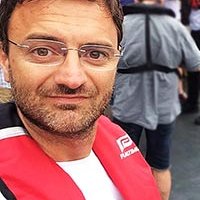
Patrizio Mariani
Organisation: Technical University of Denmark
Geographic area of activity: Atlantic & Artic
Areas of expertise: Marine technology, Ocean observations, Numerical Modelling, Integrated Ecosystem Assessment, Multiple pressures, Fish Ecology, Biodiversity
Dr. Patrizio Mariani is Professor at DTU and leads the research area in Observation Technology at DTU Aqua. The focus is on the development of ocean technology supporting the next generation of integrated marine ecosystem assessment. He holds a PhD (2005) and MSc (2000) in Marine Science and Engineering from the University of Naples. He is president and coordinator of EUROMARINE, coordinator of project MISSION ATLANTIC and main PI in several EU projects.
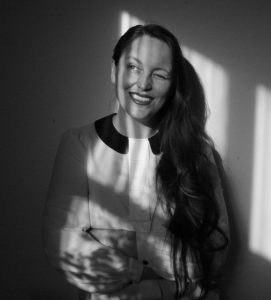
Aiste Klimasauskaite
Organisation: University of Bergen, Norway
Geographic area of activity: Atlantic & Artic
Areas of expertise:Policy research, science for policy, deep-sea mining, ocean governance
During my MA, I have been exploring coastal zone management issues. Then, in my PhD, I have researched transboundary water desalination politics. As a postdoc, I currently research deep-sea mining policies and politics, in Norway and in the international seabed. I mainly work with qualitative data collection and analysis approaches, including interviews and document data.

Jesus Argente Garcia
Organisation: University of Murcia, Spain
Geographic area of activity: Mediterranean Sea
Areas of expertise: Sustainable blue economy, environmental governance, marine protected areas, digitalisation, socio-ecological systems, blue biotechnologies.
I’m a marine biologist and PhD in marine and coastal socio-ecological systems and the influence of their digitisation in blue economy sectors. I work in a multidisciplinary research group in the Department of Information and Communication Engineering at the University of Murcia. My main activity focuses on how to improve participatory environmental governance processes and the management of natural resources (marine and coastal) through the application and use of ICT.
Mireia Sanchez
Organisation: Bluewave Alliance, Spain
Geographic area of activity: Mediterranean Sea
Areas of expertise: Public mobilisation and engagement
Passionate about marine sustainability and ocean conservation, I am dedicated to applying my business acumen towards meaningful environmental impact. My seven years of strategic consulting experience have sharpened my ability to address complex challenges with a critical and strategic mindset. My master’s in ESG enhances my knowledge, and my love for the ocean fuels my purpose.
Tiago Garcia
Organisation: +ATLANTIC CoLAB, Portugal
Geographic area of activity: Atlantic & Arctic
Areas of expertise: Public mobilisation and engagement
Over 20 years of experience, split between marine science communication and coastal research. With a background in environmental engineering and marine sciences, I have actively contributed to communicating and disseminating various projects under FP6, H2020, HE, and ESA, collaborating with international organizations such as EurOcean and UNESCO IOC. As a learn-by-doing communicator, I have conceived and executed numerous communication strategies, consistently guided by the objective of ensuring that scientific results are accessible and utilized by all types of stakeholders, including the general public. Dedicated to promoting ocean literacy, I founded Projeto 19, engaging 500 teenagers in translating ocean research papers into artistic performances and communication to their family and friends. Since 2021, I have served as the Communication Officer of +ATLANTIC CoLAB, in Lisbon, Portugal.
We’re here to help!
If you need more information, we’re here to help. The PREP4BLUE team believes in open communication and we value the insights and perspectives from our community. You can get in touch with us using the contact form or sending us an email at prep4blue@cetmar.org. Our panel of experts will strive to respond to your query as quick as possible.
We inform you that your personal data will be processed by EUROMARINE and FUNDACIÓN CETMAR, in line with General Data Protection Regulation (GDPR) 2016 requirements. Any information you provide will be used exclusively within the framework of the PREP4BLUE Project, and will not be used for commercial purposes and will not be sold, rented, leased or forwarded to any third party. Your data will be kept at least for three years after the end of the PREP4BLUE Project (expected by May 2025). You can exercise your rights of access, rectification, cancellation, opposition, portability, and limitation of the processing of your data by contacting FUNDACIÓN CETMAR, C/ Eduardo Cabello S/N 36208 Vigo, Pontevedra (Spain), or prep4blue@cetmar.org, attaching a copy of your ID to properly verify your identity.
